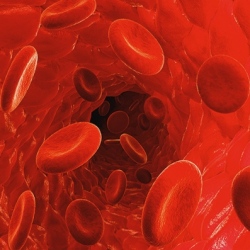
A Food and Drug Administration advisory committee unanimously recommended that the agency approve a "living drug" approach for children and young adults who are fighting a common form of leukemia. The agency doesn’t have to follow the committee’s recommendation but usually does.
The treatment takes cells from a patient’s body, modifies the genes, and then reinfuses those modified cells back into the person who has cancer. If the agency approves, it would mark the first time the FDA has approved anything considered to be a "gene therapy product."
The treatment is part of one of the most important developments in cancer research in decades, finding ways to harness the body’s own immune system to fight cancer. And while it has generated much hope, there are some concerns about its safety over the long term, and its cost.
Even so, several of the committee members were unusually enthusiastic in explaining their 10-0 vote recommending approval.
"This is the most exciting thing I’ve seen in my lifetime," said Dr. Timothy Cripe, an oncologist at the Nationwide Children’s Hospital in Columbus, Ohio.
"This is a major advance and is ushering in a new era in treating children," agreed Dr. Malcolm Smith, associate branch chief for pediatric oncology at the National Cancer Institute.
For years, scientists have tried to use drugs that stimulate the immune system to fight cancer, and have had only modest success.
In recent years, however, scientists developed a new generation of "immunotherapy" drugs that have produced impressive results for a wide range of cancers by unleashing the body’s natural defense system.
The new treatment is known as CAR-T cell immunotherapy. It works by removing key immune system cells known as T cells from the patient so scientists can genetically modify them to seek out and attack only cancer cells. That’s why some scientists refer to this as a "living drug."
Doctors then infuse millions of the genetically modified T cells back into the patient’s body so they can try to obliterate the cancer cells and hopefully leave healthy tissue unscathed.
"It’s truly a paradigm shift," said Dr. David Lebwohl, who heads the CAR-T Franchise Global Program at the drug company Novartis, which is seeking the FDA’s approval for the treatment. "It represents a new hope for patients."
The drug endorsed by the advisory panel is known as CTL019 or tisagenlecleucel. It was developed to treat children and young adults ages 3 to 25 who have relapsed after undergoing standard treatment for B cell acute lymphoblastic leukemia, which is the most common childhood cancer in the United States.
While this blood cell cancer can be highly curable, some patients fail to respond to standard treatments; and a significant proportion of patients experience relapses that don’t respond to follow-up therapies.
"There is a major unmet medical need for treatment options" for these patients, Dr. Stephen Hunger, who helped study at the Children’s Hospital of Philadelphia, told the committee.
